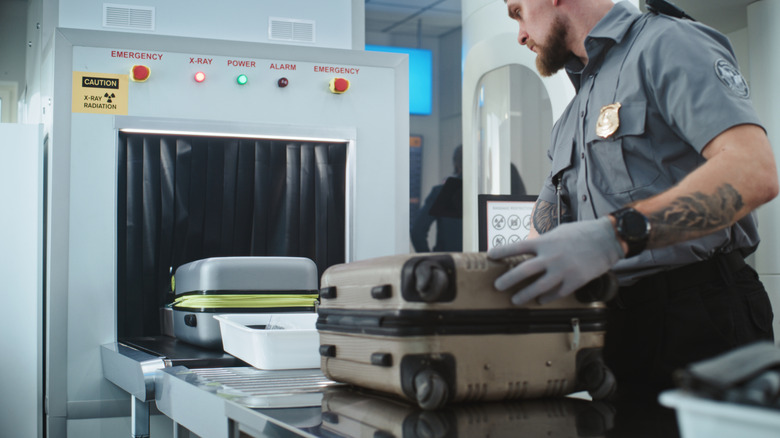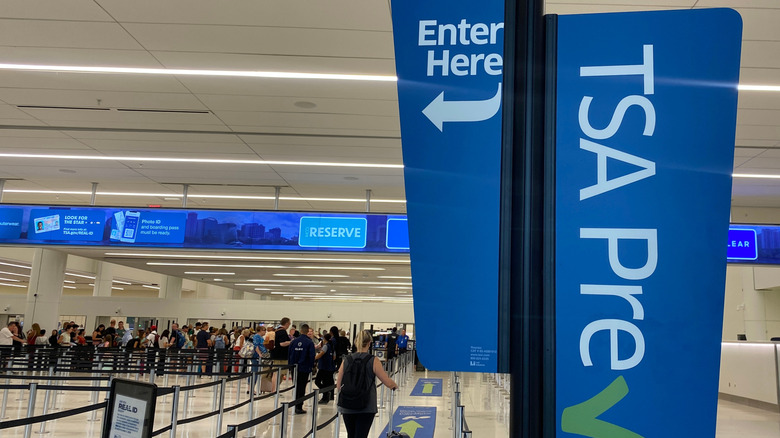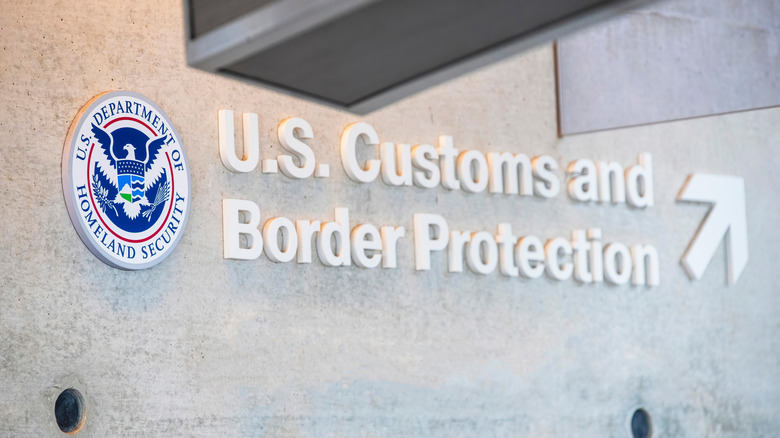Can The TSA Inspect Your Laptop Or Phone?
These days, we don't go anywhere without our smartphones, and if we are traveling by airplane for business purposes, then our laptops may be essential to bring with us. However, the Transportation Security Administration (TSA) travel rules can leave us worried about what we can and can't bring, as well as how thoroughly our items will be checked — for example, the TSA lets you travel with AirTag, but some other battery-powered trackers may not be permitted. This concern becomes even more pronounced when it comes to the personal and sensitive information stored on our laptops and phones.
Despite the long and often annoying process of TSA screenings, they were created with safety in mind. TSA was first established after the terrorist attacks of September 11, 2001. One reason why TSA takes specific precautions around laptops is because of an incident in February 2016 in Somalia, where a bombing attempt was made on Daallo Airlines. An explosive was hidden inside a laptop that passed through the X-ray screening undetected. It exploded during the flight, injuring two people and killing the alleged bomber himself.To clarify, the incident isn't directly related to TSA, but they took a lesson from that.
When it comes to laptop and phone inspections, TSA can evaluate them up to a point. They will conduct a basic inspection, but nothing in-depth and nothing involving personal data. However, customs can become very personal and may even copy data from your devices if they deem it necessary.
TSA's inspection process
You are allowed to bring your smartphone in your carry-on bag or in your checked bag. You can do the same with your laptop, but it must pass an extra inspection. It must be placed in a separate bin for X-ray screening. Per TSA rules, "You will be asked to remove personal electronic devices larger than a cell phone from your carry-on bag and place them into a bin with nothing placed on or under them for X-ray screening." That is why the laptop must pass this extra screen, but not your phone.
TSA may ask you to turn on your laptop or cell phone. This is to ensure they are actually what you say they are and are not hiding a bomb. Ensure that the devices' batteries are charged so that they will turn on when needed. However, TSA rules state it will "not read or copy information from your device." So, you don't have to worry about your personal information. The TSA is also clear that if an officer has any suspicion about what you are carrying, they can elect not to allow it to proceed.
This is a win for data privacy when it comes to the TSA, despite the fiasco with the luggage lock keys, which was considered a security breach of sorts. The TSA cannot access your device's personal data or search it themselves. However, passing through customs is a different story.
Customs inspections
The U.S. Customs and Border Protection (CBP) has more leeway when it comes to doing a detailed search of your laptop or phone. You will encounter CBP if you travel to another country and then travel back to the United States. These searches include U.S. citizens, so you are not exempt from them just because you are returning home.
Customs can do a basic search of your devices, which is just a manual check. However, an advanced search is more in-depth. With this, they can analyze information on your devices and even copy the contents. To do this, they must believe there is a reasonable suspicion to warrant such a search. CBP rules state that these measures are to identify "terrorist activity, child pornography, drug smuggling, human smuggling, bulk cash smuggling, human trafficking, export control violations, intellectual property rights violations, and visa fraud, among other violations."
The good news is that these types of searches don't happen often. The CBP reports that in Fiscal Year 2024, less than 1% of travelers' electronic devices were searched, and that 90% of those searches were basic and not advanced. CBP assures in its rules that the data it obtains is kept private and only shared with parties for investigative purposes. Although it's not the first time airlines and data security are a concern, such as Delta's AI initiative, at least when it comes to TSA and CBP, your laptop information is secure.


